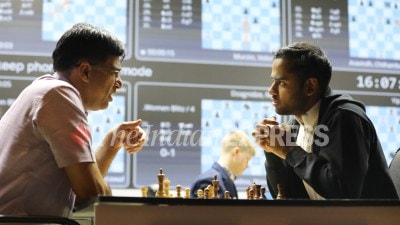From Kargil to the Hague
Pakistan plans to take its 60 million claim for compensation for the Atlantique, shot down by the Indian Air Force, to the International...

Pakistan plans to take its 60 million claim for compensation for the Atlantique, shot down by the Indian Air Force, to the International Court of Justice at the Hague. That is a very sensible thing to do. As paradoxical as it may sound, New Delhi should be pleased. The move should be welcomed as the only way of resolving this latest dispute between the two countries.
Going to court is certainly an improvement on what has been going on since August 10 when the Atlantique was shot down. Pakistani potshots at Indian helicopters and endless verbal bickering in the two capitals about who did what were inevitable in the immediate aftermath of the incident. Mutual suspicion was running high and trust between the leadership of the two countries was at its lowest ebb. But it will not help to improve the atmosphere if tit-for-tat action and acrimonious exchanges go on. The first carries military risks which both sides will want to avoid, and the second will not produce a satisfactory outcome for eitherside.
Rather than add the Atlantique to the long list of festering disputes between India and Pakistan, let the matter go to the Hague. A challenge in court means that the Atlantique is not likely to be the start of an eyeball to eyeball confrontation on the Sir Creek. There is more on the upside.
Nawaz Sharif will be able to tell his increasingly impatient critics that something is being done to make India pay for its egregious mistake. New Delhi insists it acted correctly and can go about confidently proving its case in court. If the case is indeed heard in the Hague, the Atlantique could turn out to be the second time in history that an India-Pakistan dispute has actually been resolved. It is hard to remember the first in these troubled days but it was the famous agreement on sharing the waters of the Indus river.
Meanwhile, India8217;s policy-makers should try and learn a thing or two from the whole episode. The most obvious area of concern is the state of communications at military and politicallevels and what needs to be done in future to ensure that they work at a high level of efficiency during an emergency.
It would also appear that standing agreements between the two countries do not lay down precisely the sort of drill each should follow in the event of an aerial incursion or suspicion of such an incursion. These questions are not academic. Sooner or later India and Pakistan are going to have to move on from Kargil and find ways of getting back to the discussion table.
Confidence building measures will be back on the agenda again. It is as well to plan for that time and take a clear-eyed look at the shooting down of the Atlantique. Pakistan was clearly in the wrong not to notify India about a flight so close to the border. Was it essential to bring the plane down or could it have been forced to land? What technological means can be used to back up diplomatic agreements regarding flights and troop movements on the borders? Political leaders ought to spend more time finding answers for suchquestions and less time thumping their chests.
- 01
- 02
- 03
- 04
- 05































